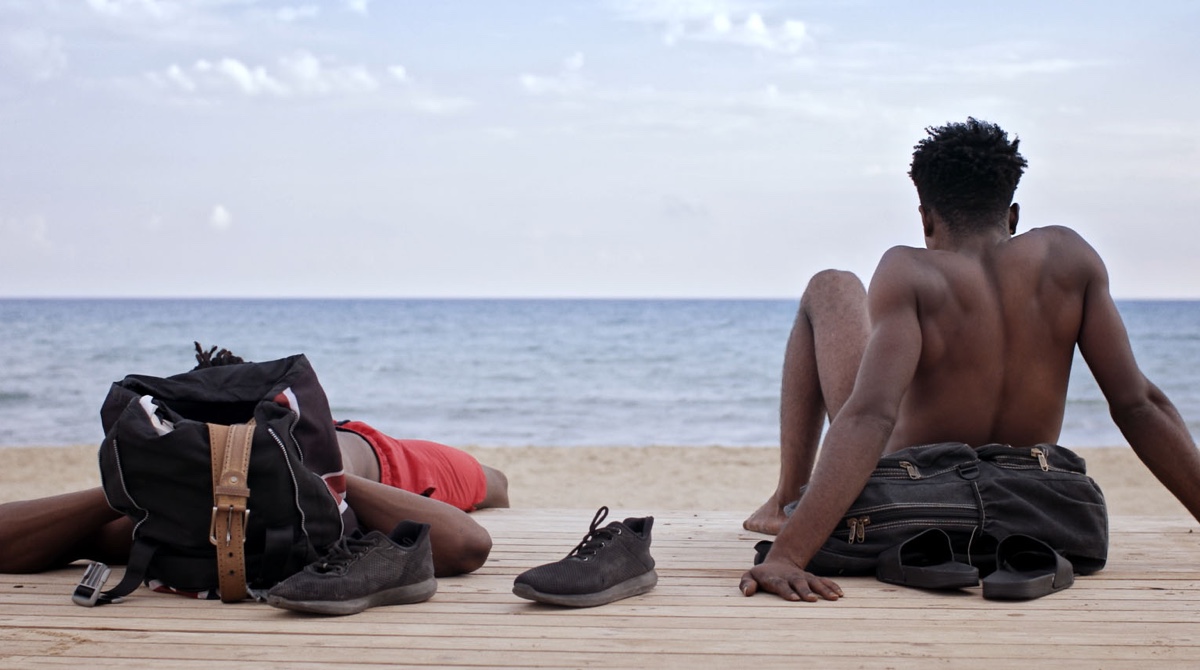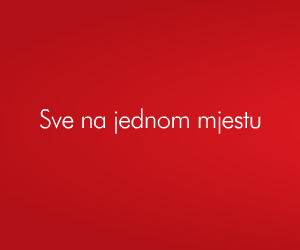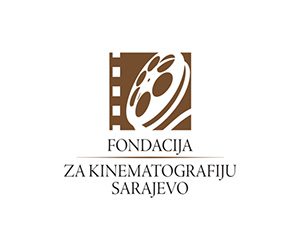
27/08/2021
In my films, I explore marginal characters who are invisible in society
Silence is something that speaks much more, that is a dialogue – Michelle Pennetta considers, the Italian director who discovers the harsh reality, but also the hope that persists in spite of everything, through the amazing photography of the film ‘Il mio corpo’. His documentary drama, selected for the official selection of the 22nd Mediterranean Film Festival in Široki Brijeg, follows two very different, charismatic young men leading parallel, impoverished lives on the edge of Sicily. Both of them dream about escape to a better life.*The film ‘Il mio corpo' ends the ‘Sicilian trilogy’ you started in 2013. What is it about?
I have always been fascinated by Sicily and I went to Catania where I made the first film of the trilogy, 'A iucata’. I fell in love with the island as well as its hidden side. In each of my films, I am interested in marginal characters, invisible to the society. I wanted to show this world of those left behind. While I was making my first film, I witnessed problems linked to migration flows. In all my documentaries, I ask myself the question of the point of view. How to look at the reality of immigration in a new way? I think that at the time I was not mature enough to talk about this subject. I had to make an inner and artistic journey. In my next film, ‘Pescatori di corpi’, I tested a device based on parallel stories that I take up again in ‘Il mio corpo’. But with this last film, I blurred the line between documentary and fiction even more. I have always worked on this aspect in my previous films but the desire to abolish this limit is stronger here.
They say the key to understanding your film is silence. The depth of the film is precisely in what happens between the dialogues. What do you say?
I am a great lover of the expressive power of images. The word in this film is not the protagonist, but I try to find the word elsewhere, in the wanderings. And I find something in the silence of people who don't speak much, people who suffer. I try to capture their thoughts, try to imagine what they would have in their head, what their desires would be, what their dreams would be... So it's clear to me: silence is something that speaks much more, that is a dialogue. I often push the silences to the end. Silences are important, but so are sounds. Except at the very end, no music was added to the film. I shoot a lot with the sounds on location. After each take, the sound engineer with whom I work, Edgar Iacolenna, makes another hour of recordings of the street sounds, atmospheres, little noises... I love building the sound editing with the atmospheres of the place.
The version of Sicily as you portray it in the film could be any part of Europe, and if I am not mistaken, in the film it is not even mentioned that it is Sicily?
I did not talk about a degraded Sicily, and indeed, the place is never mentioned (except once). This island is simply the mirror of Italy and Europe: these are typical realities of our society, which show the abandonment of the institutions. That's why the film was so popular abroad. In France, people asked me if I had shot it in Marseille, North Africa or the Balkans. The universality of these two stories is rendered, paradoxically, by the Sicilian dialect and the Nigerian language, which become a common language, as well as by the simplicity of certain moments, gestures where everyone can find themselves.
The film is somehow on the border of documentary and fiction?
This is something I've been working on since I started making documentaries. What is a documentary? What is fiction? Where is the border? We have been questioning these formal aspects since the Lumière brothers. As soon as you place your camera in a given environment, you are already making fiction. You should not ask yourself whether you are making fiction or documentary because the border between the two is porous. You have to establish a relationship of trust to obtain this mixture of naturalism and fiction. We spent a lot of time with the protagonists, without filming them. I rarely asked them to replay scenes. In order to make films in this form, you have to be more of a psychologist than a filmmaker.
Documentary film has changed its status?
I agree. I left Italy, it sounds absurd, but I went to Switzerland to be able to afford to study cinema. I have cultivated this passion for documentary here, in the French-speaking part, linked to the vast French documentary culture. In Italy, Gianfranco Rosi had the merit of giving legitimacy to documentary by winning the Golden Lion in Venice for 'Sacro Gra' and in recent years the border between documentary and fiction has fallen. However, producing a documentary remains complicated. 'Il mio corpo' is the first production I have made with Italy. In Europe, documentary has changed its status in terms of distribution as well: at last, it is no longer a niche within the film world.
What, in your opinion, is the duty of a documentary?
For me, the aim of documentary filmmakers is indeed to shed light on, to give a vision of a phenomenon or a precise subject. From this point of view, film work is fully similar to that of the human sciences. Sociological, anthropological, historical, etc. work cannot have a more noble vocation than to shed light on the foundations of reality. It is only thanks to documentary or Cinéma du Réel that an author can understand the world in which he lives better and share his vision with the public.
Are there ‘good sides’ to the pandemic, when we talk about its impact on the film world. Maybe the fact that movies are watched more at home today, which is definitely a plus for all those who were not candidates for big cinemas?
For the post-pandemic period, I think that this alternation between theatres and platforms could give better visibility to certain films. We need to rethink the physical cinema space, but what we are facing is a near future, in which films will be released in cinemas and then a few days later will go on the platforms. Besides, because of the pandemic, many festivals have become hybrid and I don't see this as a negative thing: it can help independent cinema to be more accessible, to get out of the strictly cinephile environment.
Your next project takes you to the Balkans?
The Balkans have always fascinated me, my next and first fction film 'The White Club' will tell the story of the journey of the two Albanian girls who cross the Balkans to reach Italy. This is a theme of survival within the European borders. It's a challenge for me because this will be my first fiction film, although it is inspired by real events and the characters will mostly be non-professionals. If they say that my documentaries are close to fiction, this new film will be very close to a documentary.
*Text published in Večernji list


